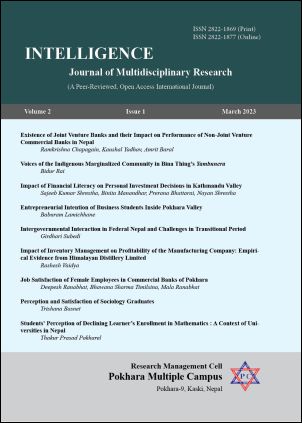Intergovernmental Interaction in Federal Nepal and Challenges in the Transitional Period
DOI:
https://doi.org/10.3126/ijmr.v2i1.53620Keywords:
Cooperation, Conflict, Politicat transition, Tussle, Vertical relationsAbstract
Federalism is a power-sharing political system, which designates power through various layers of government. Powers are delegated and decentralized by the constitution over the different layers of government. In federalism, intergovernmental or inter-province relations are very crucial for better delivery of the federal system. The provinces in Nepal are at loggerheads and as they are facing internal conflicts, and the inter-governmental relations are not so smooth. The provinces are attempting to make their internal cooperation better but this is not achieved due to political transition. Given this complex context, poor intergovernmental relations and conflicts between the three layers of government in Nepal have become one of the key challenges for the successful implementation of federalism. Limited knowledge, short experience with federalism and lack of legal and policy issues have created these gaps. The contexts have further jeopardized inter-governmental relations. Weak intergovernmental relations in federalism would ultimately pose a challenge to federalism and result in political instability in Nepal.




